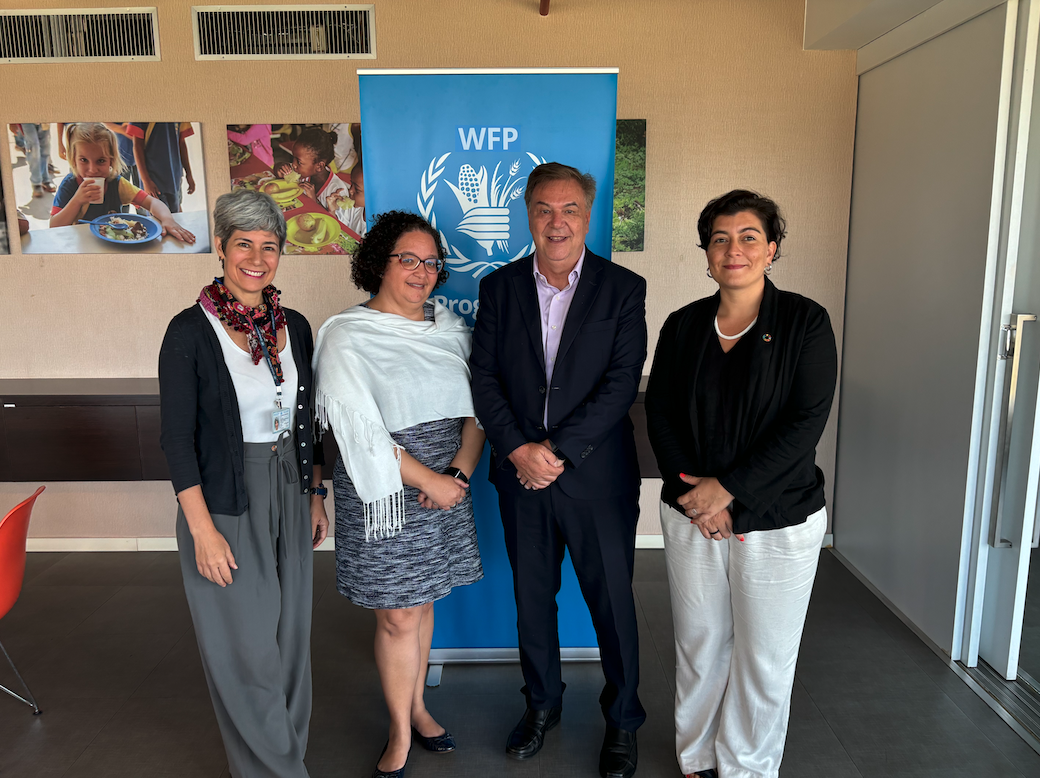
The implementation of sustainable solutions in agriculture to improve food systems and the expansion of partnerships were the main topics of a meeting held on February 19, attended by environmental engineer and manager of sustainable agriculture at the UN Global Compact – Brazil Network, Aline Leão, along with representatives from the WFP Centre of Excellence Against Hunger team in Brazil, including director Daniel Balaban, nutritionist and Project Officer Eliene Sousa, and Communications Officer Daniela Costa.
The Global Compact was launched in 2000 by the UN to bring companies together toward sustainable progress. Around 1,900 companies participate in the Global Compact – Brazil Network, with over 50 projects in areas such as water and sanitation, food and agriculture, energy and climate, human rights and labor, anti-corruption, engagement, and communication.
In the area of sustainability in agriculture, the goal is to engage with companies, convince producers to adopt new practices, offer training that combines rural technology with environmental and social components, and create agreements that integrate production methods. “In Brazil, the Global Compact has the second-largest network in the world, with increasing involvement and commitment to sustainability,” said Aline.
For Daniel Balaban, the faster companies adapt to sustainable solutions, the greater the benefit for everyone: “The new generations demand effective solutions to the challenges we face today. Agriculture needs to adapt to the new, and it also needs to show what it is already doing right.”
He emphasized that the Centre of Excellence helps countries create sustainable food systems solutions. Projects like regenerative agriculture for school meals with the Rockefeller Foundation, and promoting intercropping, such as the Beyond Cotton Project, show that there are concrete experiences that can be shared.
Regarding the Beyond Cotton Project, Eliene Sousa reminded that there are companies already actively seeking agricultural products with sustainable production models. “There is the challenge of how to get small farmers to supply large industries, but we know that these industries are starting to take an interest in agroecological products, for example. It’s an opportunity for young agricultural producers to change production models,” she said.
Another idea is the strengthening of small producers’ cooperatives so they can supply in larger quantities for international sales, another initiative that the Centre of Excellence has been developing in its Projects Unit.




